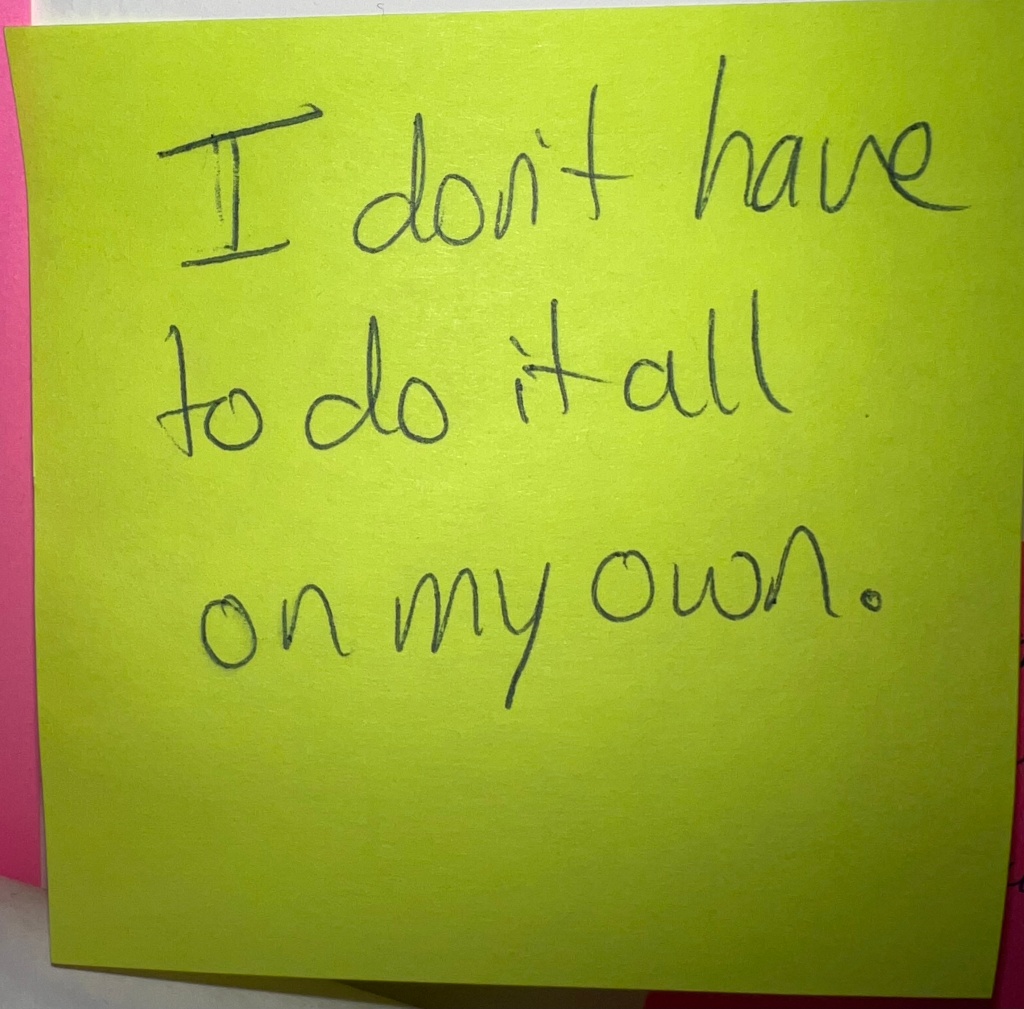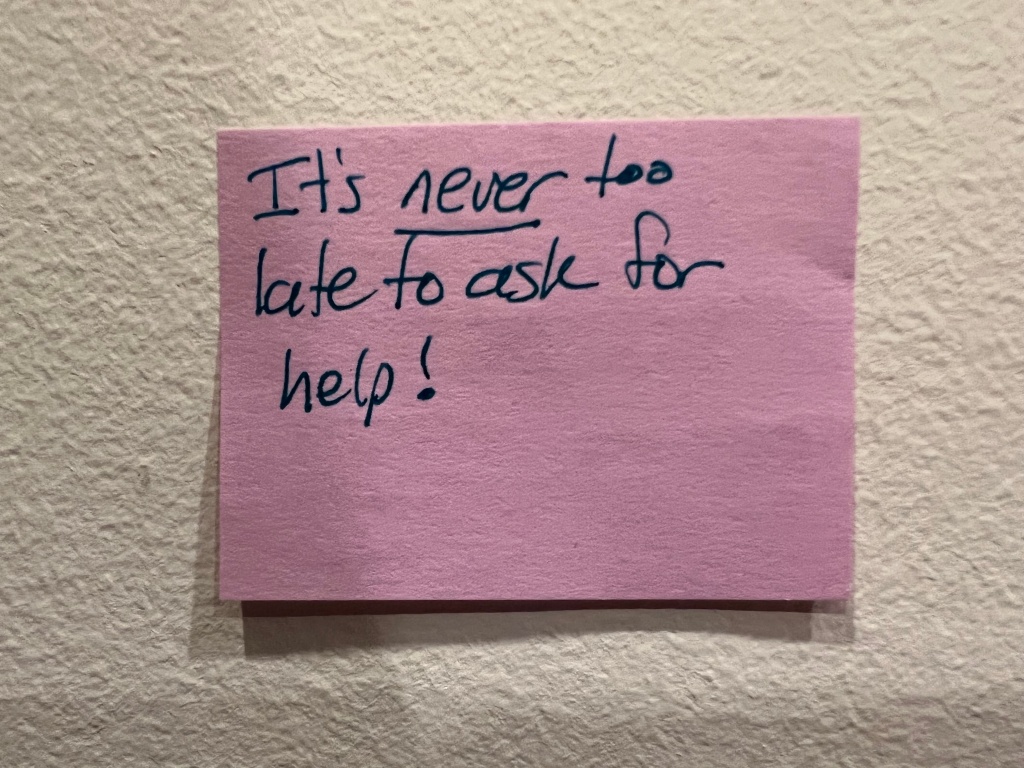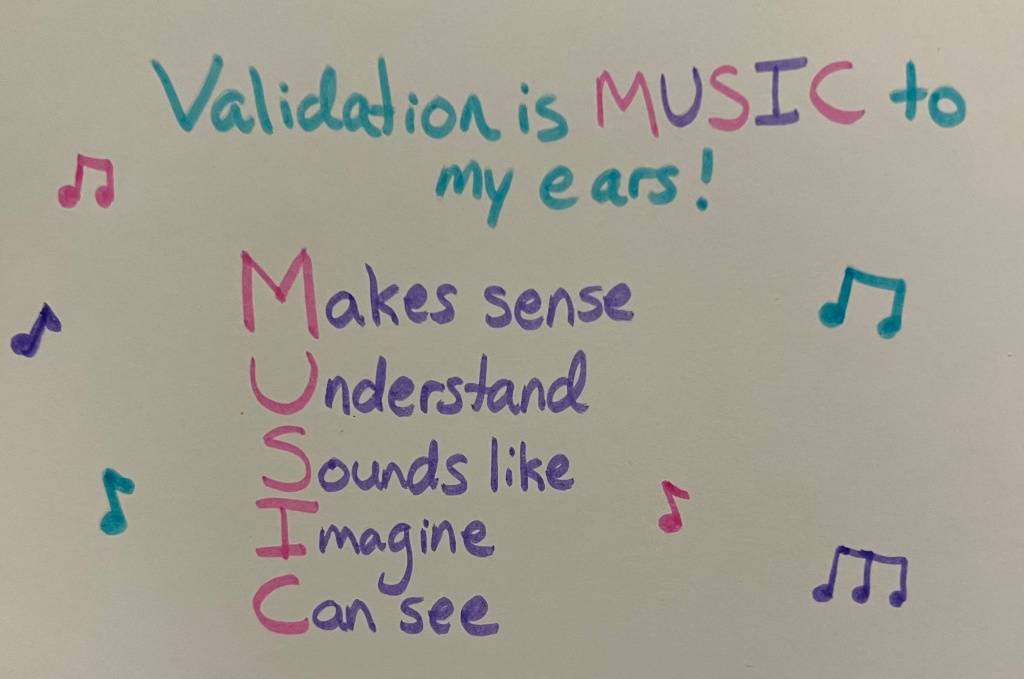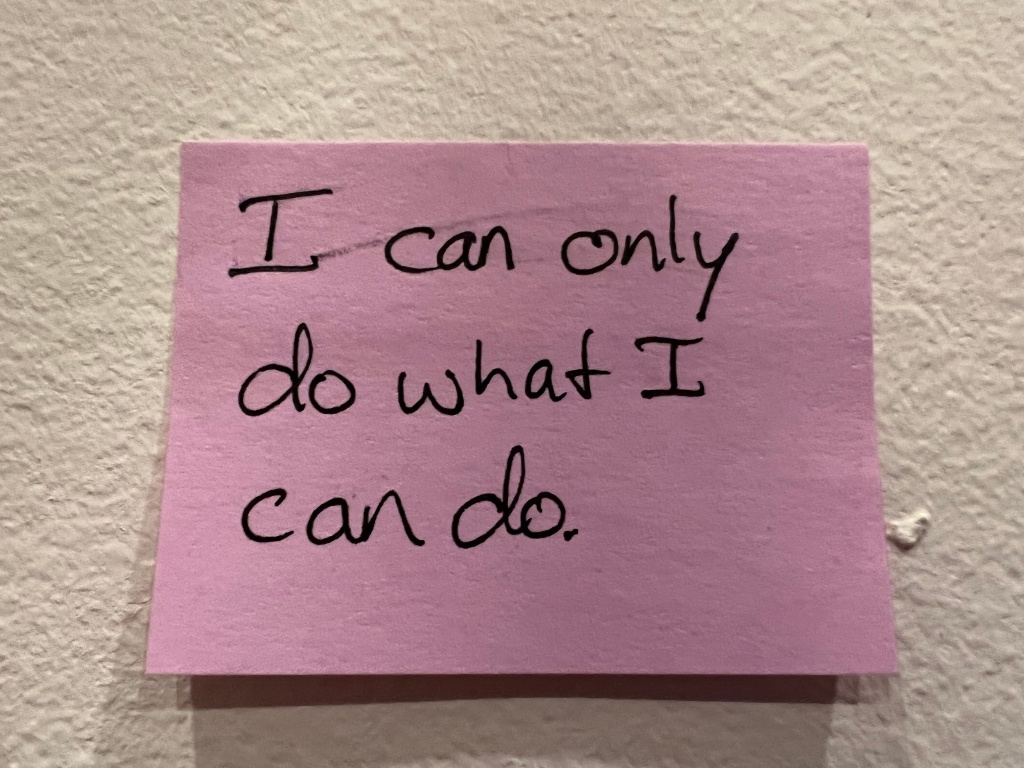Last year (actually it was 2 years ago lol, wow how time flies), I posted about the new year’s resolutions that I’ve had in previous years, and my new resolution was basically to continue the past ones.
This year, I do actually have *new* resolutions. Here they are:
- Using Luminosity.
Luminosity is a brain-training app that I used in summer 2022 when I was dealing with post-covid brain fog. I found that it helped. I’ve been feeling brain-foggy again recently, so I think I’ll try it again.
It looks like Luminosity has added more free features since the last time I used it, so maybe I won’t even need to pay for it. But if I do feel like I’m missing out by not having the premium version, I will get it because even though it’s more than I’d like to pay for an app, it pales in comparison to my other healthcare costs.
- Doing strength training.
I recently found out that people’s bone mass and muscle mass typically peak in their 20s. I’m currently in my 20s. This kinda freaked me out a little because I don’t think I have strong or big muscles or bones at all, so if it’s only going to get worse from here, that’s not good. Osteoporosis also really runs in my family. My mom’s been diagnosed with it and recently broke a bone. I also broke a bone recently. I do wonder if I wouldn’t have broken it if I’d had better bone density.
Anyway, I used to not worry about long-term health risks like this because I had a “sense of a foreshortened future” due to ptsd, i.e, I thought I would die soon/early and not live to be old. Thankfully, this ptsd symptom is fading!! It is great, but I do feel like I am kinda “late to the game” in terms of being aware of and counteracting long-term health risks. Now that I don’t feel like I’m going to die next year, these farther-off things feel worth worrying about and preparing for.
I also never knew that strength training was actually useful beyond looking like you had big muscles. I guess I was ignorant. I’ve done exercise in the past (not as much recently due to chronic illnesses like fibromyalgia), but I’ve mainly done aerobic exercise like dancing, running, and swimming. I’ve never had a gym membership or lifted weights beyond gym class in high school one time or occasionally lifting books or full water bottles in my room when I feel like I need more arm strength. Anyway, strength training and resistance training are things I will look into more and try to do this coming year because they are supposed to increase bone density.
- Writing more.
I find writing helpful for many reasons. It is nice to have a record to look back on, or even to “command-F” search through, because I am sometimes forgetful or dissociated. Writing also helps me to put my thoughts in order. Editing, even minimal editing, feels good for my brain somehow. It feels like things are more organized and structured. There is more logic. When I am writing, I am trying to get at the truth. (but it doesn’t have to be perfect! I try to not expect perfection!) Sometimes I go back and correct myself. If I am just thinking in words, it is harder to do this because I forget what I was just thinking about. I forget what conclusions I come to and how I got to them. Writing also helps me to focus on one thing at a time.
There are also downsides to writing: It requires much more effort from me than thinking the same words does. Typing on my computer can tire my hands and wrists. Typing on my phone feels easier, physically, but also feels less “clean” and open/free? Maybe it’s because the screen is smaller, and I have less perspective? It also makes editing harder. I don’t know.
I used to write a lot in my journal and then additionally on here. I haven’t done much of either recently. I’ve been trying to get back into both, and I guess it’s kinda working. I’d like to do it more. I’m struggling to write a cover letter for a job application, and one of the aspects that make it difficult is cognitive challenge of writing itself. I feel out of practice with making grammatically-correct, logical sentences that flow from one to the next and are organized in logical paragraphs. I used to be more in the mindset for this in college, and even mores in high school. I think that writing more will also be good practice for my brain (see brain fog above).
- As a subset of the above goal, blogging.
I have some ideas for posts I want to make, but I rarely actually make them. It’s hard for me to get the energy to start things because of executive dysfunction and also physical exhaustion or pain. Also, grieving Ashley was/is hard. But I think I am getting more used to wordpress without Ashley and am making peace with it (though not forgetting her or stopping being sad).
- Eat more foods.
Because I’ve been doing the low FODMAP diet for my IBS for so long, my diet has become pretty limited, and I worry that I’m missing out on key nutrients. I’ve started taking a multivitamin again and now also a magnesium supplement for my nerve pain, which my neurologist recommended (I think it’s maybe helping?? But it’s too soon to say for sure). I know that it’s not recommended to do low fodmap for so long and that it’s supposed to just be a temporary thing. I’ve been doing it for about 3 or 4 years now. Most of the foods I’ve tried to reintroduce have still given me reactions, so I’ve kept them cut out.
But, my digestive system has been pretty settled/stable for a while, so maybe I can try again. I just found out that I can eat honeydew and cantaloupe, which is a very exciting realization for me!! I think that these may have a different type of fructan from the fructan(s?) in onions and garlic. That difference would explain why I cannot have any onion or garlic but am seemingly fine with honeydew and cantaloupe. I also want to eat more herbs like basil, mint, parsley, rosemary, etc because they are low fodmap, and I’m thinking they could be a good way to get more diverse foods and minerals/nutrients into my system.
- Understand autism and PDA (pathological demand avoidance) better.
Something that I’ve discovered in the past couple of years that I don’t think I’ve written about on the blog yet is that I’m autistic. I wanted to make a whole post about it to explain, out of fear of misconceptions, stigma, judgement, and doubt of my self diagnosis / loss of trust in the what I say?, but I haven’t gotten around to doing that yet (and maybe I never will lol), so I’m just saying it now anyway because I don’t want to hide it, and the above is genuinely one of my new year’s resolutions.
I’ve learned a ton about autism, how it presents in me, and what I can do to manage it. (For example, I now have noise-blocking Loop earbuds that I can wear on public transportation, where it is chaotically noisily, that make me calmer.) But I don’t know much about PDA, and I don’t feel like I understand it or how to deal with it, even though I think it is affecting my life a lot (for the worse). So, I’d like to do some investigation into that and understand it better and figure out what I can do about it. Maybe that just means more body doubling and finding external structure, or maybe there are other tricks I don’t know about.
I have other things I want to do, but those feel like the big ones at the moment, in terms of resolutions. 🙂
Do you have resolutions, goals, plans, intentions, or hopes, etc for the new year?




